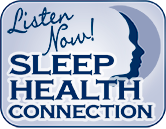Frequently Asked Questions Regarding Dental Sleep Appliances
WHAT IS O.A.T? O.A.T. stands for oral appliance therapy, a conservative treatment option that consists of a custom made dental appliance, similar to a sports mouth guard, which is worn at night while you are sleeping. Oral appliances are commonly used for keeping the airway open by bringing the lower jaw forward and preventing the tongue and other tissue from collapsing back into the throat.
WHO IS A CANDIDATE FOR O.A.T.? O.A.T. is a good treatment option for patients who snore and/or have mild apnea. It is also an excellent treatment option for patients with moderate to severe apnea who cannot tolerate CPAP therapy and do not require surgery. O.A.T. may also be a great option for people searching for a less cumbersome, easily transportable, and much more comfortable than a CPAP machine.
HOW DO I KNOW IF AN ORAL APPLIANCES IS FOR ME? A minimum of 8 healthy teeth are usually required in each jaw ( 8 on top jaw and 8 in lower jaw.) CPAP devices may be the “gold standard of care for apnea”, but if you have primary snoring, mild apnea, or are seeking alternative treatment for moderate to severe apnea, an oral appliance may be your best choice of treatment for you.
WHAT DO THEY LOOK LIKE AND ARE THEY COMFORTABLE? There are many different oral appliances for the treatment of snoring and apnea. The choice depends on many factors including each person’s individual anatomy and lifestyle demands. They feel similar to professionally fitted sports guards and night guards. Most people find them far more comfortable and convenient than the CPAP device.
Samples Of FDA Approved Oral Appliances
YES, I AM INTERESTED. WHAT IS MY NEXT STEP? Call our office to set up a consultation visit with our doctors to discuss if oral appliance therapy is the answer for you and which sleep appliance would be best suited for you. Allow a half hour for your New Patient Consultation, if you had a sleep study you will need to fax it to our office prior to your appointment.
Office: (630) 369-5508 Fax: (630) 369-7416










(630) 369-5508